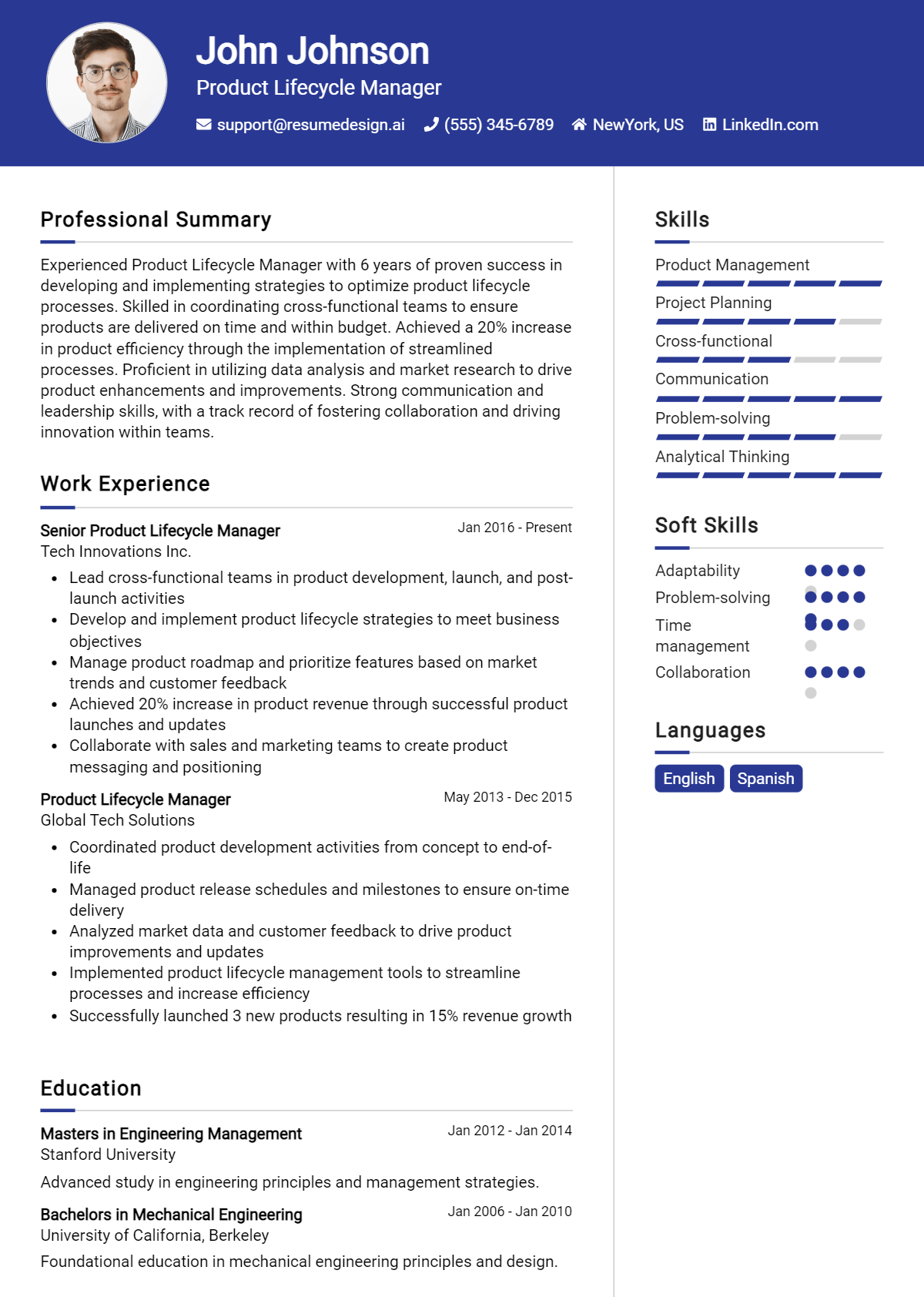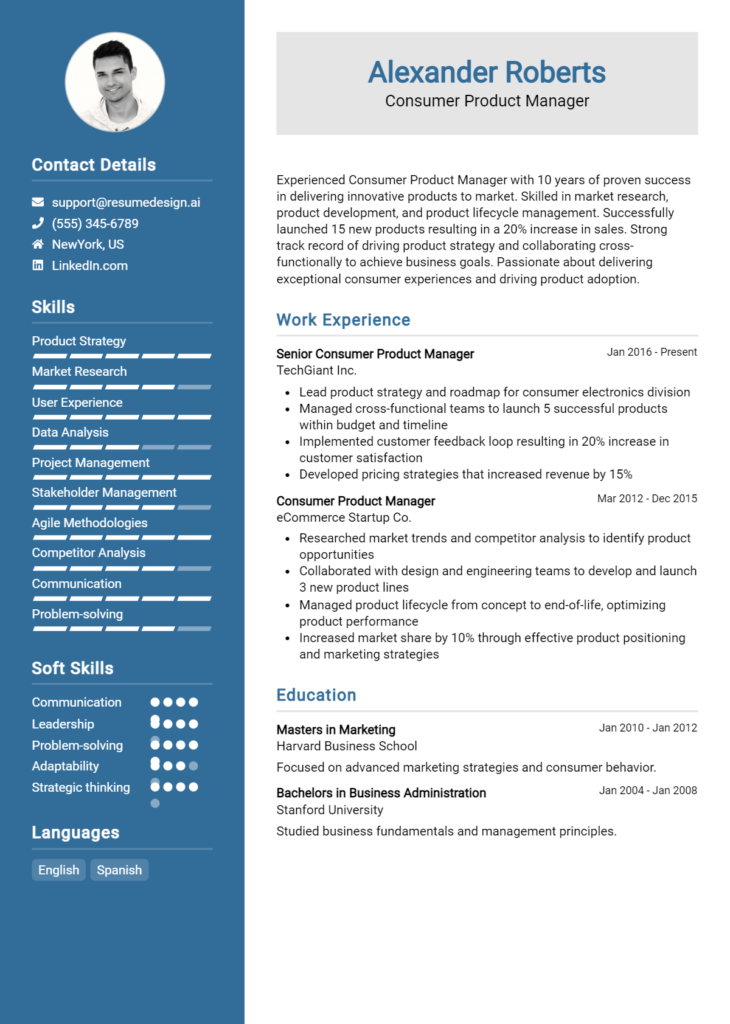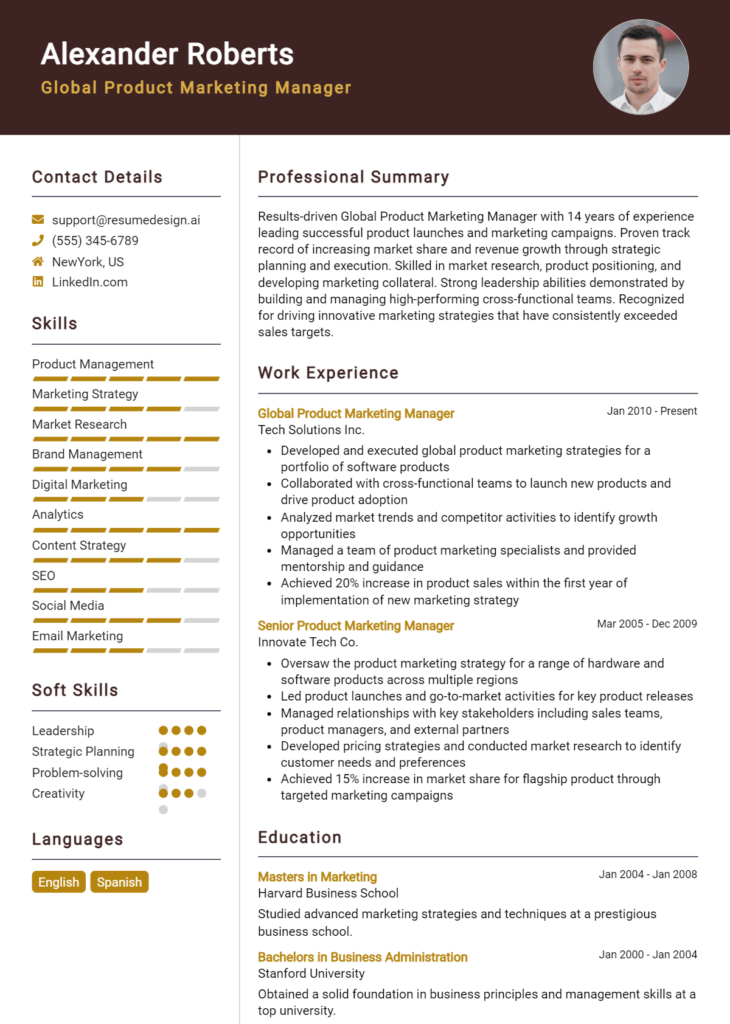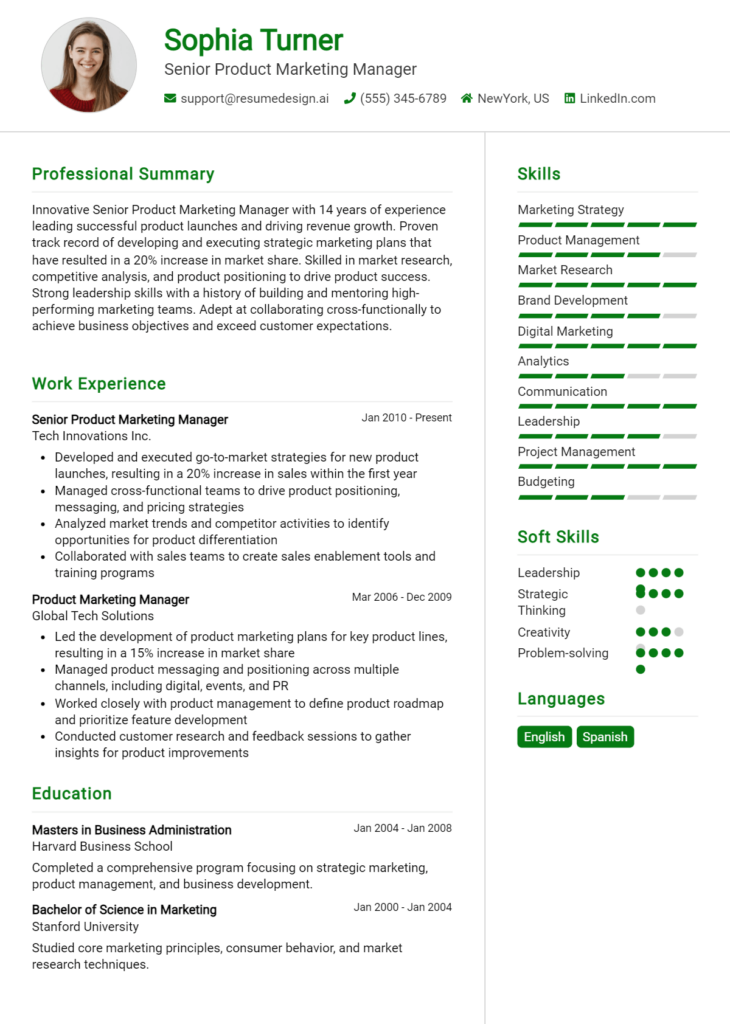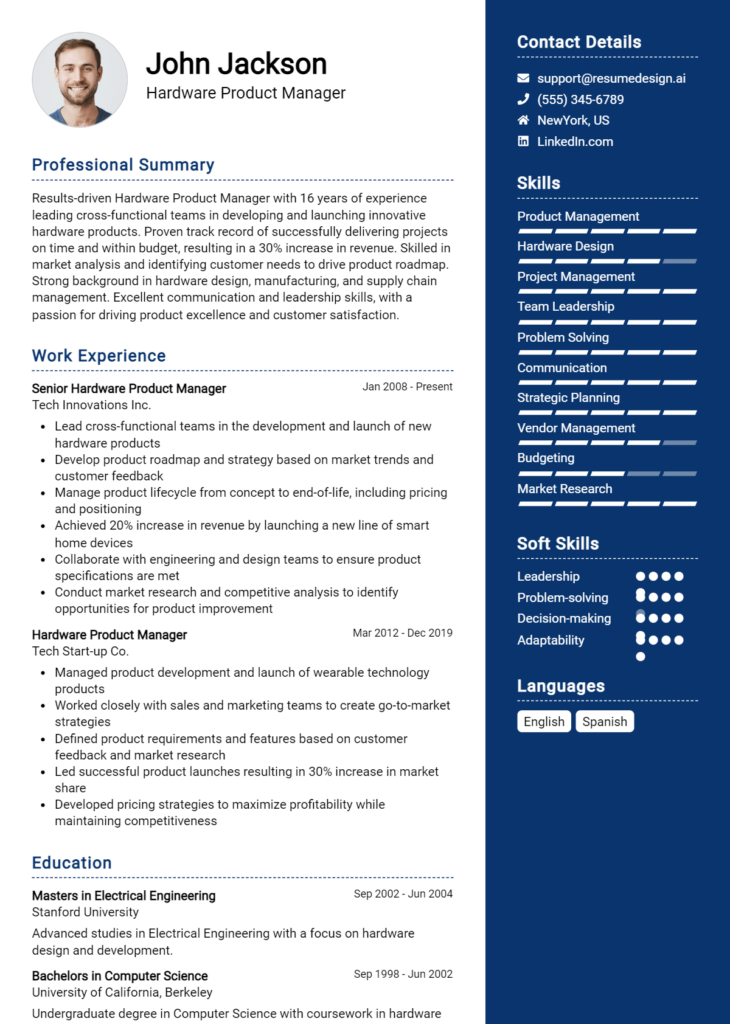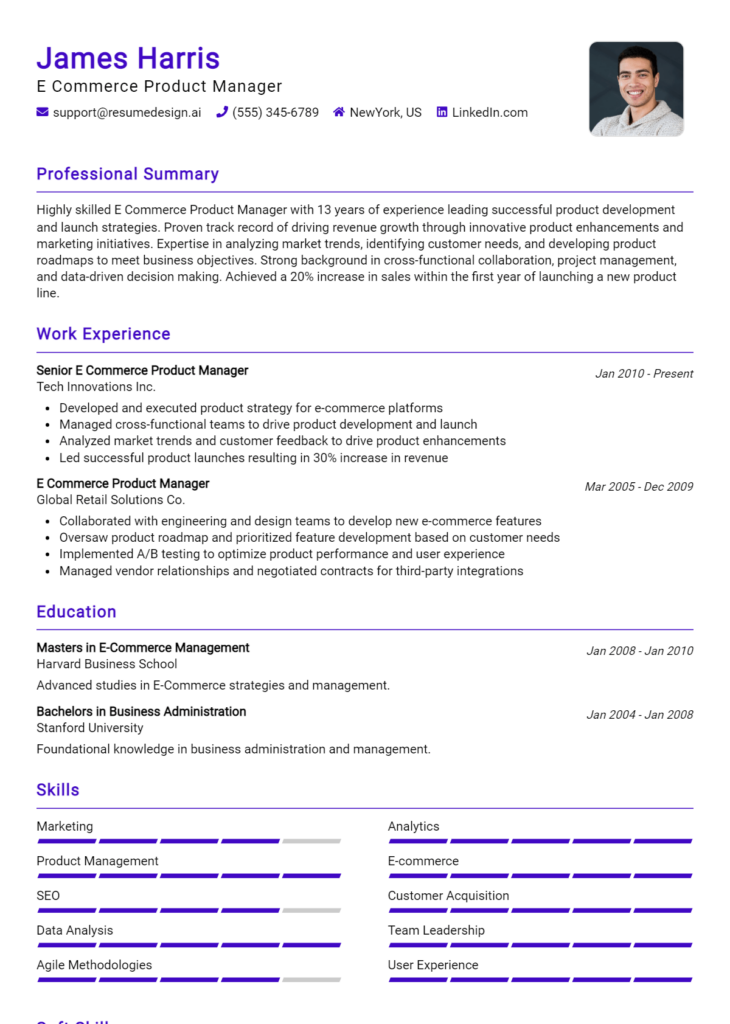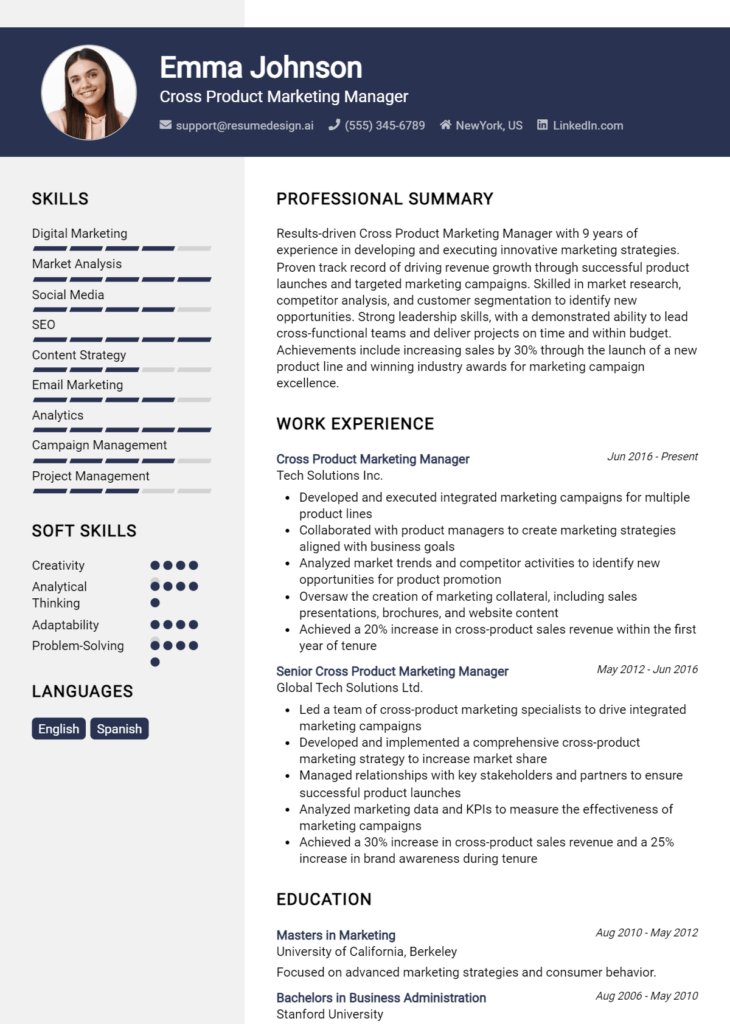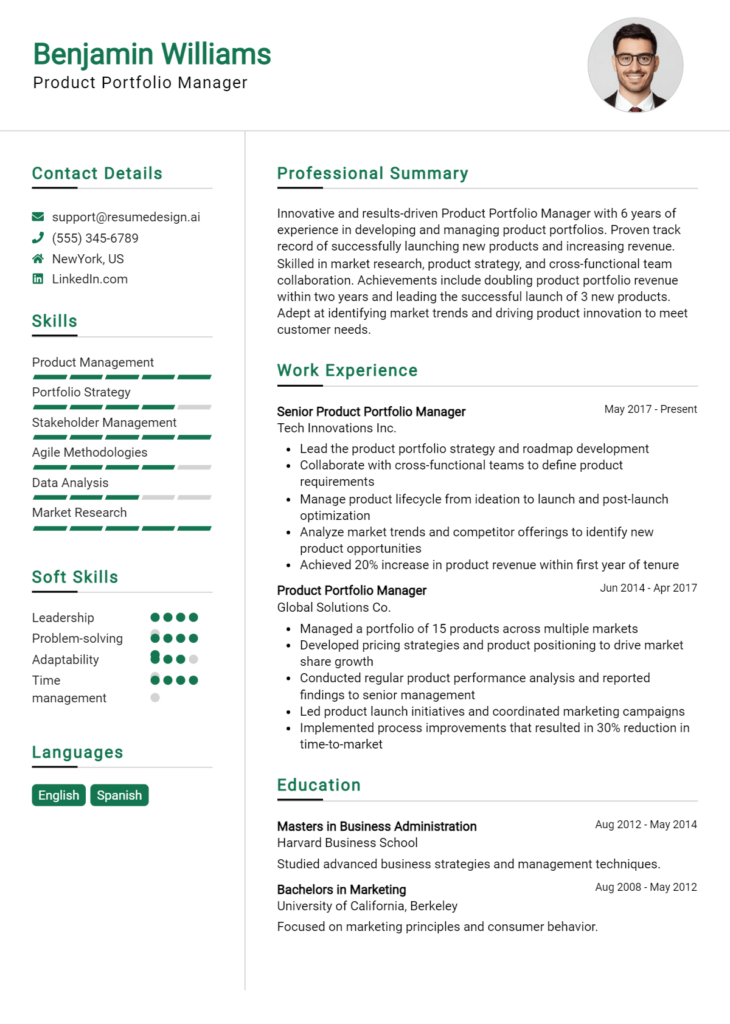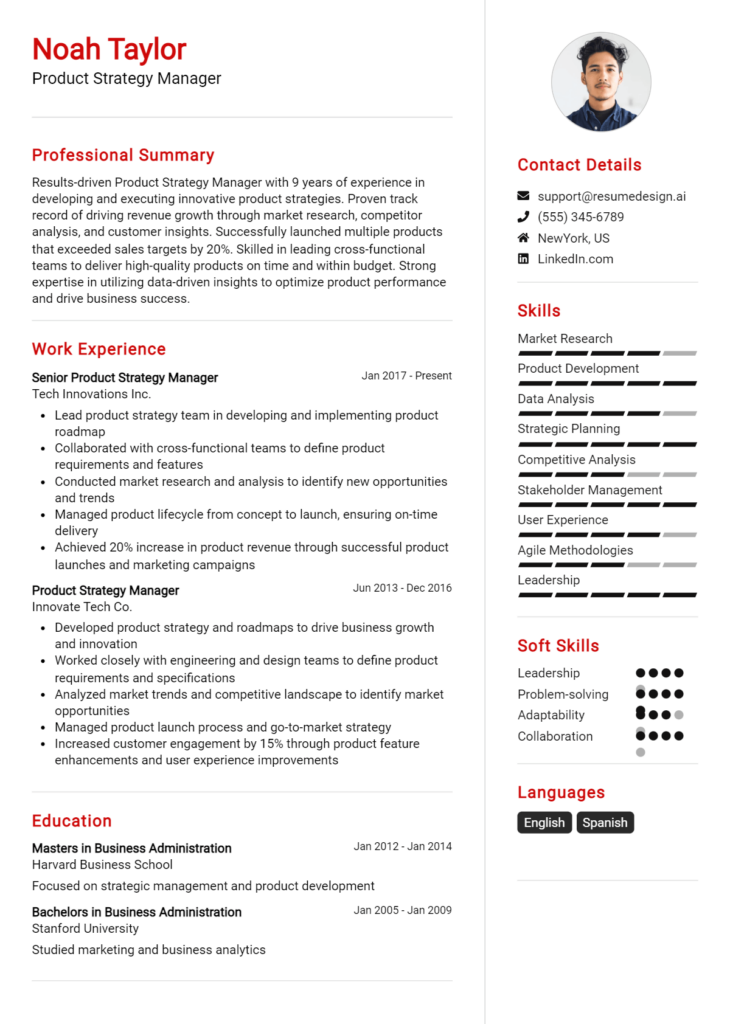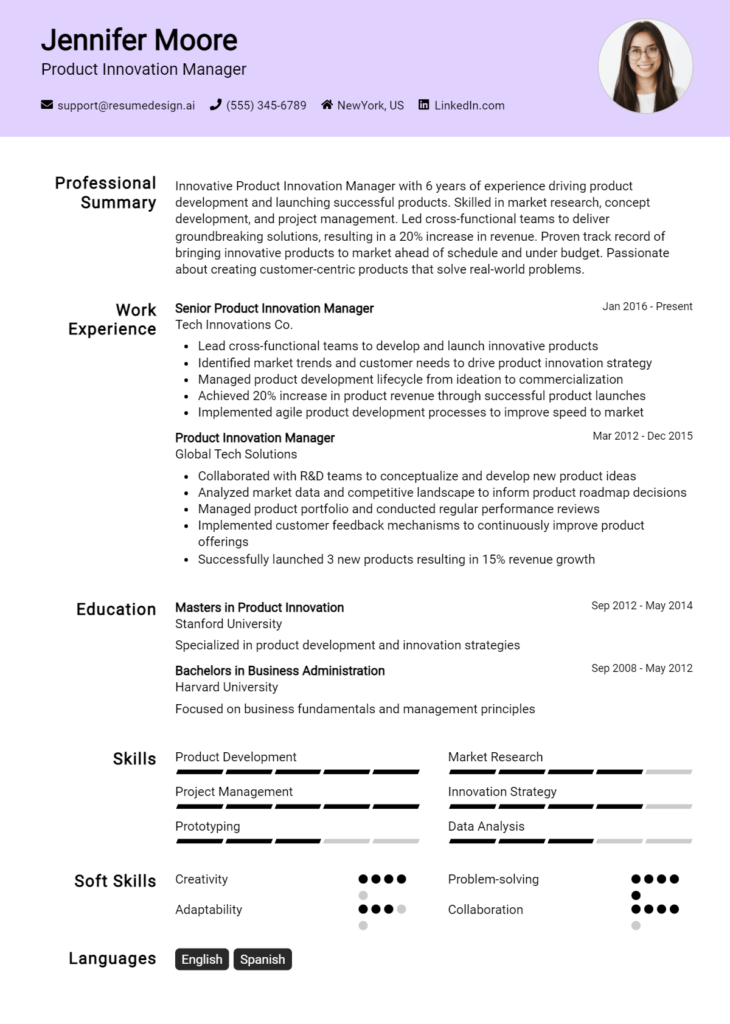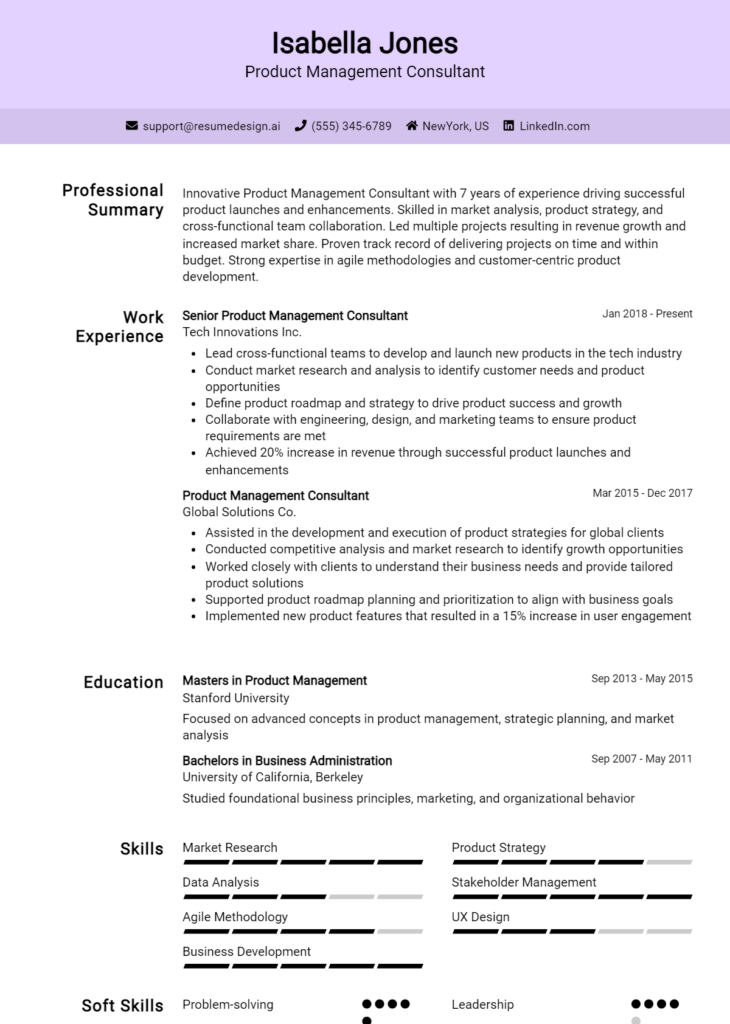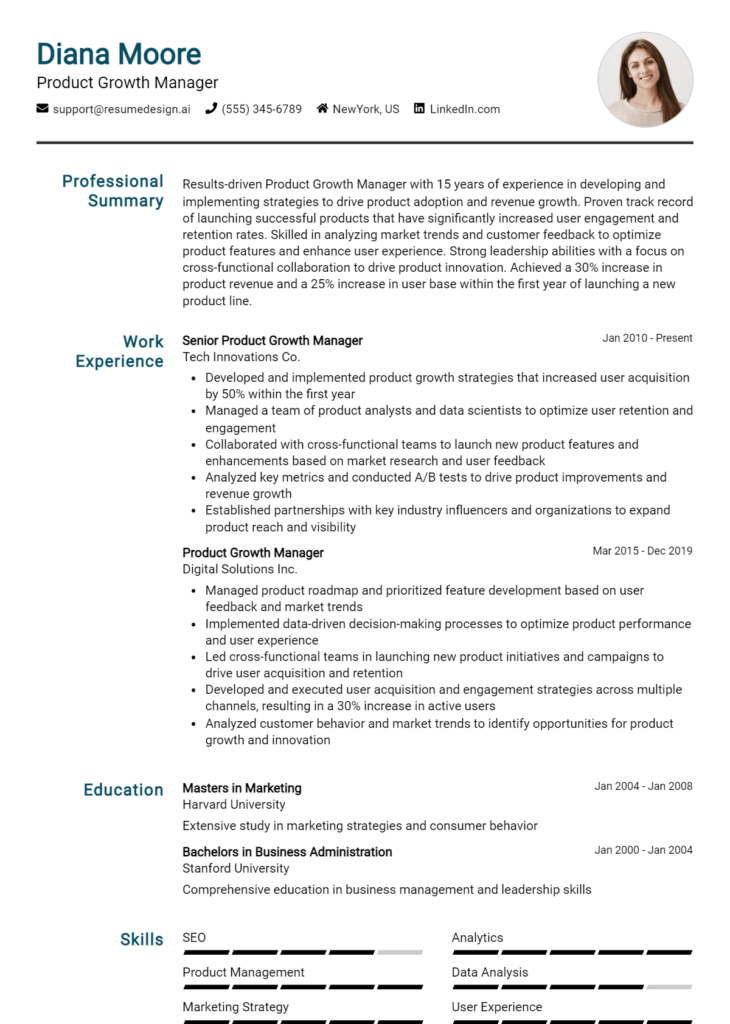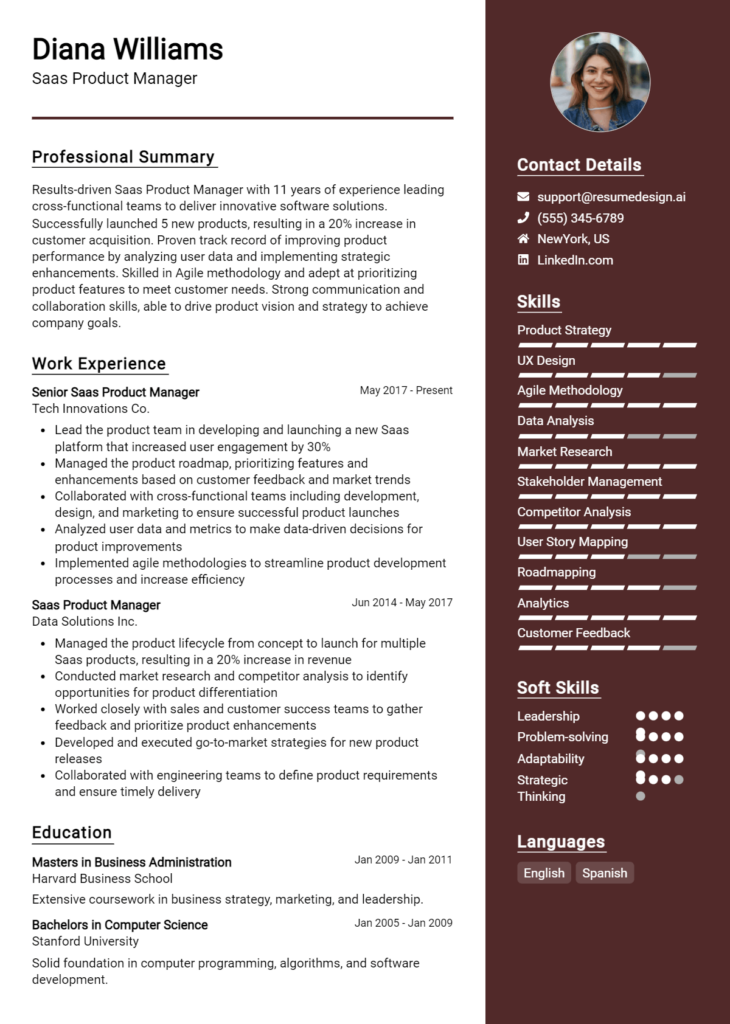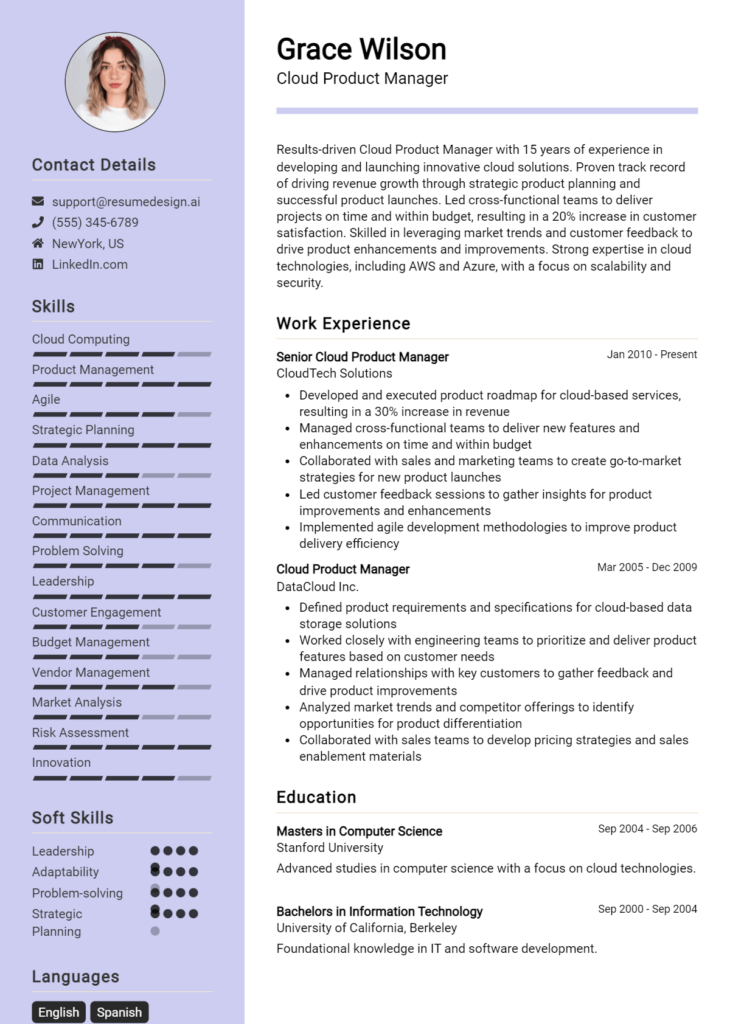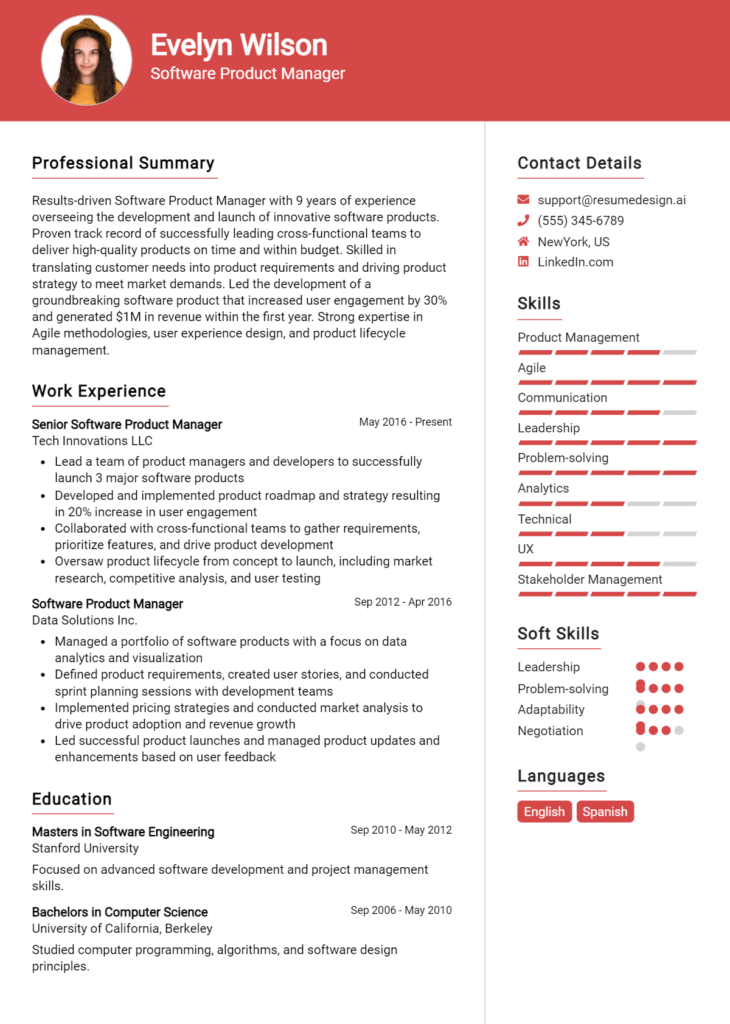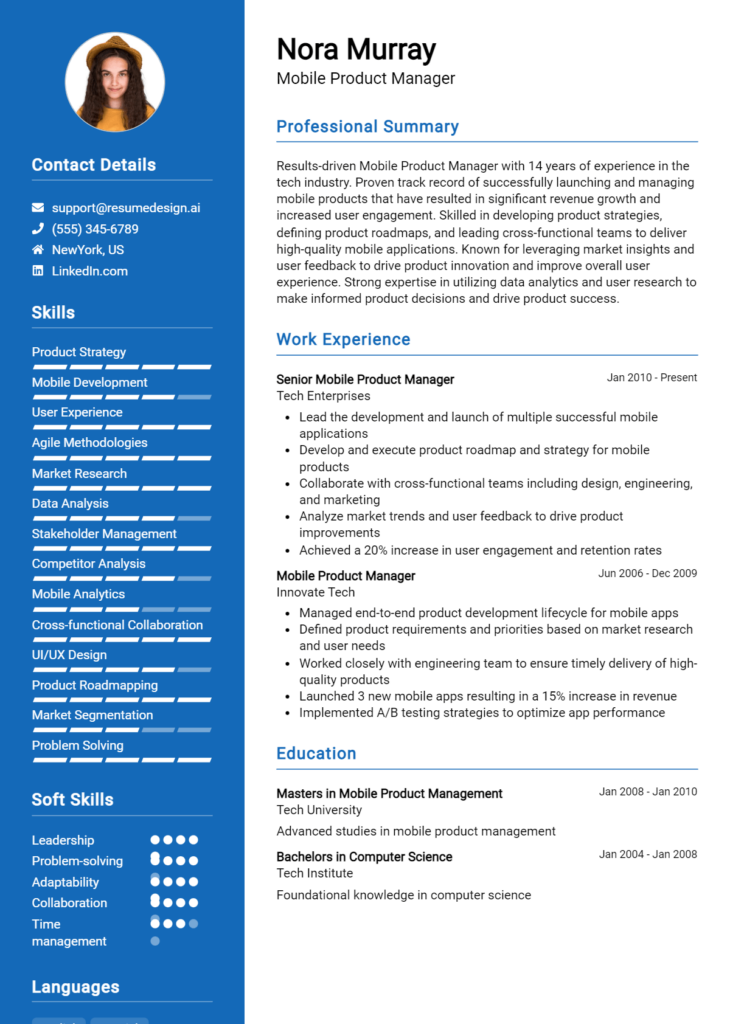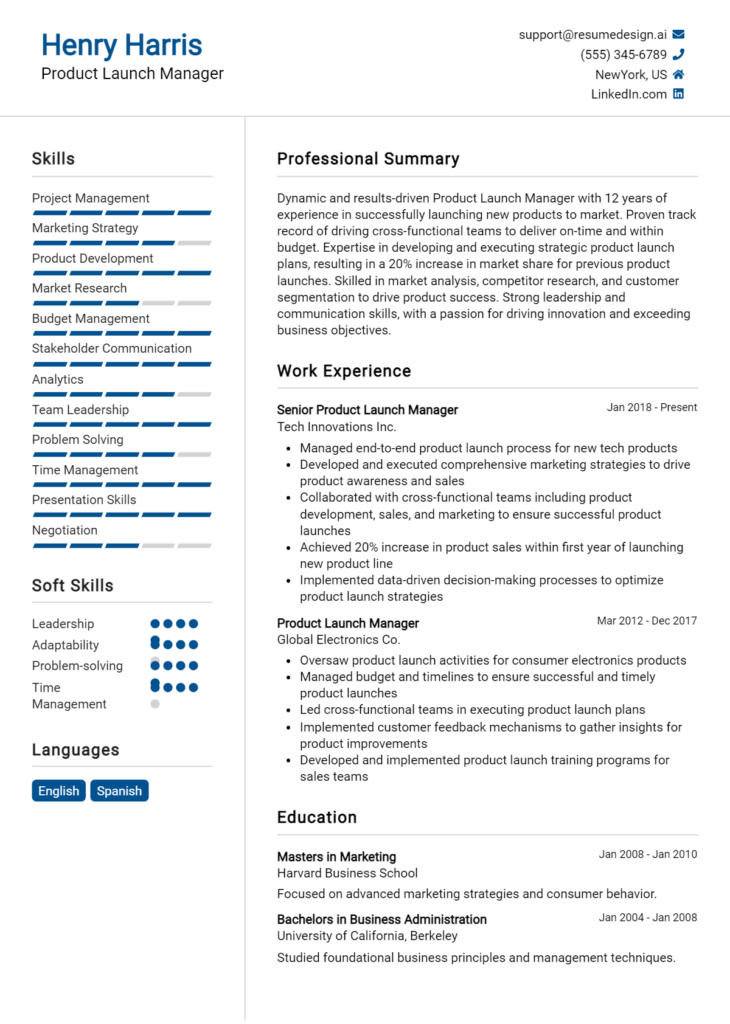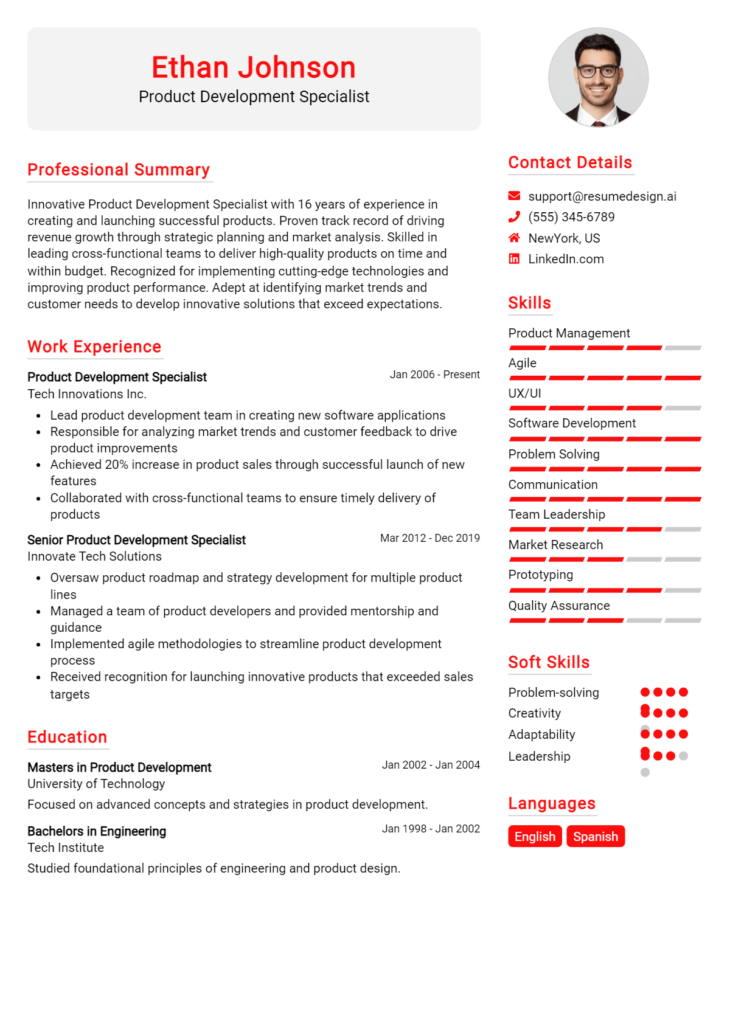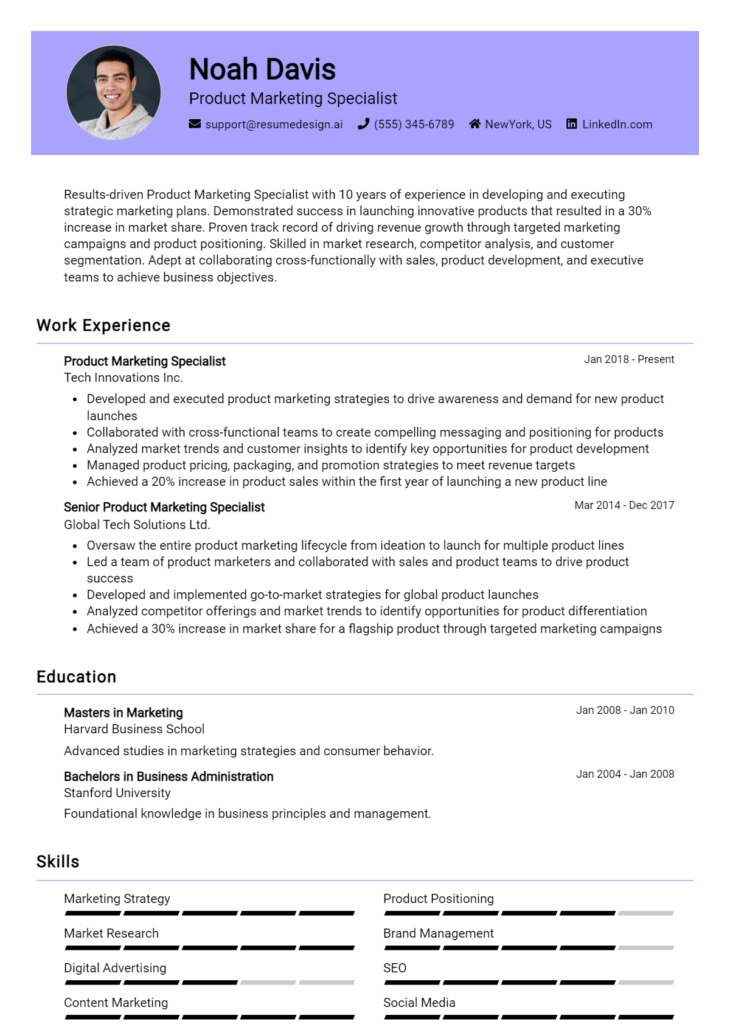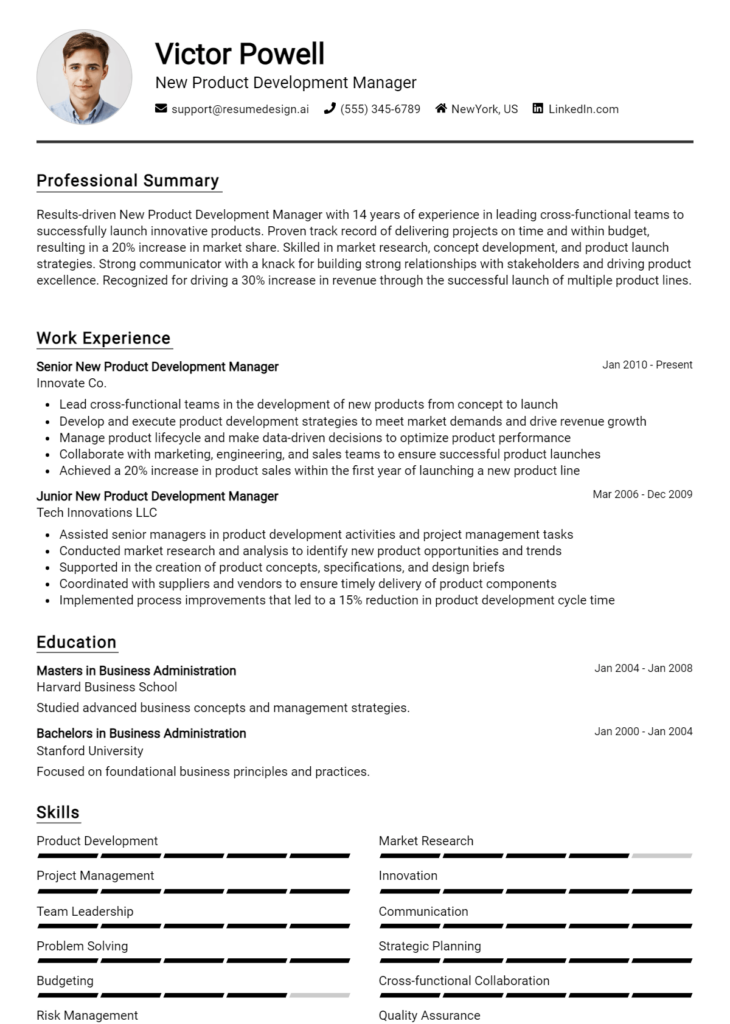Product Lifecycle Manager Core Responsibilities
A Product Lifecycle Manager is pivotal in overseeing a product from conception to discontinuation, ensuring alignment across various departments such as marketing, engineering, and sales. Key responsibilities include product strategy development, market analysis, and coordinating cross-functional teams. Essential skills encompass technical knowledge, operational efficiency, and strong problem-solving abilities, all crucial for achieving organizational goals. A well-structured resume highlighting these competencies can effectively demonstrate a candidate’s qualifications and fit for the role.
Common Responsibilities Listed on Product Lifecycle Manager Resume
- Develop and implement product lifecycle strategies.
- Conduct market research and competitive analysis.
- Collaborate with cross-functional teams to ensure product alignment.
- Manage product development from ideation to launch.
- Analyze product performance and customer feedback for improvements.
- Establish timelines and budgets for product milestones.
- Facilitate communication between stakeholders and departments.
- Monitor industry trends and regulatory changes.
- Prepare product documentation and training materials.
- Lead product discontinuation processes when necessary.
- Support sales and marketing teams with product positioning.
- Evaluate and report on product profitability and ROI.
High-Level Resume Tips for Product Lifecycle Manager Professionals
For Product Lifecycle Manager professionals, a well-crafted resume is not just a document; it’s a crucial marketing tool that can open doors to exciting career opportunities. Your resume often serves as the first impression you make on potential employers, and it must effectively convey your unique blend of skills, experiences, and achievements. In a competitive job market, it’s essential to present a resume that not only stands out but also aligns with the specific demands of the role. This guide will provide practical and actionable resume tips tailored specifically for Product Lifecycle Manager professionals, helping you to showcase your qualifications and make a lasting impact.
Top Resume Tips for Product Lifecycle Manager Professionals
- Tailor your resume to match the job description, using keywords and phrases from the listing.
- Highlight relevant experience in product management, including key projects and responsibilities.
- Quantify achievements with specific metrics, such as percentage increases in product sales or reductions in time-to-market.
- Showcase industry-specific skills, such as Agile methodologies, market analysis, and stakeholder engagement.
- Include a summary statement at the top of your resume that encapsulates your core competencies and career objectives.
- Use action verbs to describe your accomplishments, making your contributions clear and impactful.
- Incorporate sections for certifications and professional development relevant to product lifecycle management.
- Keep your resume format clean and professional, ensuring it is easy to read and visually appealing.
- Employ bullet points to make your experience digestible, allowing busy recruiters to quickly scan your qualifications.
- Proofread your resume for grammatical errors and typos, as attention to detail is critical in product management roles.
By implementing these resume tips, you can significantly enhance your chances of landing a job in the Product Lifecycle Manager field. A polished and strategically crafted resume not only showcases your qualifications but also communicates your professionalism and readiness for the challenges of the role. Invest the time in refining your resume to reflect your unique strengths, and you'll position yourself as a strong candidate in a competitive marketplace.
Why Resume Headlines & Titles are Important for Product Lifecycle Manager
In the competitive landscape of product management, a Product Lifecycle Manager plays a pivotal role in overseeing the entire lifecycle of a product from inception to retirement. A well-crafted resume headline or title is crucial as it serves as the first impression for hiring managers. It not only grabs attention but also succinctly summarizes a candidate's key qualifications and expertise in a single impactful phrase. A strong headline should be concise, relevant, and directly aligned with the job being applied for, effectively positioning the candidate as a top contender in the eyes of potential employers.
Best Practices for Crafting Resume Headlines for Product Lifecycle Manager
- Make it concise: Aim for brevity while ensuring the message is clear.
- Be role-specific: Tailor the headline to the Product Lifecycle Manager role to highlight relevant skills.
- Use impactful language: Choose strong action verbs and specific terms that resonate in the industry.
- Highlight key achievements: Incorporate metrics or accomplishments to demonstrate effectiveness.
- Focus on unique strengths: Identify what sets you apart from other candidates and convey that in the headline.
- Stay relevant: Ensure the headline aligns with the job description and required qualifications.
- Utilize industry keywords: Incorporate terminology that is common in product management to enhance visibility.
- Avoid jargon: While industry terms are important, ensure clarity and avoid overly complex language.
Example Resume Headlines for Product Lifecycle Manager
Strong Resume Headlines
Dynamic Product Lifecycle Manager with 10+ Years of Experience Driving Product Innovations and Market Growth
Results-Driven Product Lifecycle Expert Specializing in Strategic Planning and Cross-Functional Team Leadership
Award-Winning Product Manager with Proven Track Record in Launching Successful Products and Enhancing Customer Satisfaction
Weak Resume Headlines
Product Manager Looking for Opportunities
Experienced Professional Seeking New Position
The strong headlines are effective because they provide a clear and compelling snapshot of the candidate's qualifications and strengths that are directly relevant to the Product Lifecycle Manager role. They utilize specific language and metrics to convey experience and successes, making them memorable. In contrast, the weak headlines lack specificity and fail to engage hiring managers, leaving them with little insight into the candidate’s capabilities. Vague statements do not capture attention or communicate value, making it essential to craft strong, targeted headlines that stand out in the job market.
Writing an Exceptional Product Lifecycle Manager Resume Summary
A compelling resume summary is essential for a Product Lifecycle Manager, as it serves as the candidate's first impression to hiring managers. A strong summary quickly captures attention by succinctly highlighting key skills, relevant experience, and significant accomplishments that align with the job role. By presenting a clear and impactful overview, the summary sets the stage for the rest of the resume, allowing hiring managers to immediately recognize the candidate's potential value to the organization. It should be concise, tailored to the specific job being applied for, and designed to entice the reader to explore the resume further.
Best Practices for Writing a Product Lifecycle Manager Resume Summary
- Quantify Achievements: Use specific numbers and metrics to highlight your successes, such as percentage increases in revenue or reductions in time-to-market.
- Focus on Skills: Highlight key skills that are crucial for the role, such as project management, market analysis, and cross-functional collaboration.
- Tailor the Summary: Customize the summary for each job application by incorporating keywords from the job description.
- Keep it Concise: Aim for 3-5 sentences that deliver maximum impact without unnecessary detail.
- Showcase Relevant Experience: Mention your background in managing product lifecycles, including specific industries or product types you’ve worked with.
- Highlight Leadership Qualities: Emphasize your ability to lead teams and drive projects to successful completion.
- Incorporate Industry Terminology: Use language and jargon relevant to the industry to demonstrate familiarity and expertise.
- Be Authentic: Ensure that your summary reflects your true capabilities and professional persona.
Example Product Lifecycle Manager Resume Summaries
Strong Resume Summaries
Dynamic Product Lifecycle Manager with over 8 years of experience driving product innovations that resulted in a 30% increase in market share. Proven expertise in cross-functional team leadership and strategic planning, successfully launching 15 products from concept to market.
Results-oriented professional with a track record of managing end-to-end product lifecycles, leading to a 25% reduction in development costs and a 40% faster time-to-market for new products. Skilled in utilizing data analytics for informed decision-making and improved product positioning.
Accomplished Product Lifecycle Manager with a strong focus on customer insights and market trends, achieving a 50% increase in customer satisfaction scores through targeted feature enhancements and effective stakeholder engagement. Experienced in Agile methodologies.
Weak Resume Summaries
Product Lifecycle Manager with experience in product management. I am good at working with teams and have some skills in project management.
Experienced professional looking for a role in product management. I have worked on various projects and can manage products effectively.
The strong summaries exemplify clarity and specificity, showcasing quantifiable achievements and relevant skills that directly relate to the Product Lifecycle Manager role. They provide concrete evidence of the candidate's capabilities and successes, making them stand out to hiring managers. Conversely, the weak summaries are vague and lack detail, failing to provide measurable outcomes or specific competencies, which does not effectively communicate the candidates' qualifications for the role.
Work Experience Section for Product Lifecycle Manager Resume
The work experience section of a Product Lifecycle Manager resume is crucial as it provides a comprehensive overview of the candidate's professional journey and highlights their technical capabilities, leadership skills, and ability to deliver high-quality products. This section serves as a testament to their proficiency in managing product lifecycles, from conception to launch, and showcases their ability to work collaboratively with cross-functional teams. By quantifying achievements and aligning their experiences with industry standards, candidates can effectively demonstrate their value to potential employers and set themselves apart in a competitive field.
Best Practices for Product Lifecycle Manager Work Experience
- Focus on quantifiable achievements, such as revenue growth, cost savings, or market share increase.
- Highlight technical skills relevant to product lifecycle management, such as proficiency in project management software or data analysis tools.
- Emphasize leadership capabilities by detailing team management experiences and successful project outcomes.
- Showcase collaboration with cross-functional teams, including engineering, marketing, and sales, to illustrate teamwork and communication skills.
- Align experiences with industry standards and best practices to demonstrate familiarity with current trends and methodologies.
- Use action verbs to convey a proactive approach and impactful contributions to product development processes.
- Incorporate relevant certifications or training that support your expertise in product lifecycle management.
- Tailor the work experience section to the specific job description, aligning your skills and experiences with the employer's needs.
Example Work Experiences for Product Lifecycle Manager
Strong Experiences
- Led a cross-functional team in launching a new product line that increased annual revenue by 30%, exceeding sales projections within the first year.
- Implemented a new project management system that reduced product development time by 25%, resulting in faster time-to-market for key products.
- Collaborated with engineering and marketing teams to revamp an existing product, achieving a 40% increase in customer satisfaction scores as measured by post-launch surveys.
- Mentored junior product managers, enhancing team performance and contributing to a 15% increase in project completion rates.
Weak Experiences
- Responsible for managing products and teams.
- Worked on various projects related to product development.
- Participated in meetings to discuss product strategies.
- Assisted in the launch of new products.
The experiences listed in the "Strong Experiences" section are considered valuable because they provide clear, quantifiable outcomes and demonstrate the candidate's technical leadership and collaborative efforts. In contrast, the "Weak Experiences" section reveals vague statements that lack specific achievements or measurable impacts, making them less compelling to potential employers. Strong experiences illustrate not only what the candidate has done but also how their actions have positively influenced business outcomes, while weak experiences fail to convey any real contribution or expertise.
Education and Certifications Section for Product Lifecycle Manager Resume
The education and certifications section of a Product Lifecycle Manager resume is crucial as it showcases the candidate's academic background and commitment to professional development. This section highlights relevant degrees, industry-recognized certifications, and any specialized training that the candidate has pursued, demonstrating their knowledge and expertise in product management. By providing details on relevant coursework and certifications, candidates can significantly enhance their credibility and ensure alignment with the requirements of the job role. Employers often seek individuals who not only possess the necessary skills but also show a dedication to continuous learning, making this section a vital component of a compelling resume.
Best Practices for Product Lifecycle Manager Education and Certifications
- Include degrees relevant to product management, engineering, business, or related fields.
- Highlight industry-recognized certifications, such as Certified ScrumMaster (CSM) or Product Management Professional (PMP).
- Detail relevant coursework that pertains to product lifecycle management, market analysis, or data analysis.
- Keep the information up to date, removing any outdated or irrelevant qualifications.
- Use a clear format that makes it easy for hiring managers to scan through your educational credentials.
- Consider including online courses or workshops that demonstrate ongoing education in the field.
- Tailor the section to emphasize skills that are most applicable to the specific job description.
- Be specific about the level of certification obtained, such as 'Advanced' or 'Professional' where applicable.
Example Education and Certifications for Product Lifecycle Manager
Strong Examples
- M.S. in Product Management, University of California, Berkeley, 2020
- Certified Scrum Product Owner (CSPO), Scrum Alliance, 2021
- Postgraduate Diploma in Project Management, Stanford University, 2019
- B.A. in Business Administration with a focus on Marketing, University of Michigan, 2018
Weak Examples
- Bachelor of Arts in English Literature, University of Texas, 2010
- Certification in Basic Computer Skills, 2015
- High School Diploma, Springfield High School, 2005
- Outdated certification in Microsoft Office Suite, 2012
The strong examples listed above are considered relevant because they directly align with the skills and knowledge required for a Product Lifecycle Manager role, emphasizing advanced education and industry-recognized certifications. Conversely, the weak examples demonstrate a lack of relevance to product lifecycle management, with outdated qualifications that do not contribute to the candidate's credibility in this field. This distinction is essential for hiring managers seeking candidates who possess the necessary expertise and dedication to succeed in the role.
Top Skills & Keywords for Product Lifecycle Manager Resume
In the competitive field of product management, a Product Lifecycle Manager plays a crucial role in guiding a product from its inception to its retirement. Highlighting relevant skills in your resume is essential, as they demonstrate your ability to navigate the complexities of product development, market analysis, and customer engagement. Employers look for a blend of hard and soft skills that indicate both technical proficiency and interpersonal effectiveness. A well-crafted resume that showcases these skills can set you apart from other candidates and illustrate your readiness to contribute to the organization's success.
Top Hard & Soft Skills for Product Lifecycle Manager
Soft Skills
- Strategic thinking
- Communication
- Team collaboration
- Problem-solving
- Leadership
- Adaptability
- Customer focus
- Time management
- Negotiation
- Conflict resolution
- Creativity
- Analytical thinking
- Empathy
- Decision-making
- Networking
Hard Skills
- Product lifecycle management
- Market research
- Data analysis
- Project management
- Agile methodologies
- Financial forecasting
- Competitive analysis
- Product roadmapping
- User experience (UX) design
- Quality assurance
- Regulatory compliance
- Technical writing
- Software development lifecycle (SDLC)
- Product marketing
- Statistical analysis
- Supply chain management
For more information on specific skills and how to effectively highlight your work experience in your resume, consider exploring additional resources.
Stand Out with a Winning Product Lifecycle Manager Cover Letter
As a seasoned Product Lifecycle Manager with over seven years of experience in driving product strategies from conception to market launch, I am excited to apply for the opportunity at [Company Name]. My background combines a deep understanding of market trends and consumer needs with a proven track record of collaborating cross-functionally to deliver successful products. I am particularly drawn to [Company Name] because of its commitment to innovation and excellence, which aligns perfectly with my professional philosophy and aspirations.
In my previous role at [Previous Company Name], I successfully led a diverse team through the entire product lifecycle, from initial market research and development to product launch and post-launch analysis. One of my key achievements involved the revitalization of an underperforming product line, where I implemented a comprehensive market analysis and repositioning strategy that resulted in a 30% increase in sales within the first six months. My ability to leverage analytics and customer feedback to inform product decisions ensures that I consistently deliver on both business objectives and customer satisfaction.
I possess a robust skill set in project management, product development, and stakeholder communication, which I believe are essential for the Product Lifecycle Manager role at [Company Name]. My experience in Agile methodologies has equipped me with the tools to adapt quickly to changing market dynamics while maintaining a focus on strategic goals. I am eager to bring my expertise in driving product success and fostering collaborative relationships to your team, ensuring that [Company Name] continues to set the standard in the industry.
Thank you for considering my application. I look forward to the opportunity to discuss how my skills and experiences align with the goals of [Company Name]. I am excited about the possibility of contributing to your team and helping to shape the future of your product offerings.
Common Mistakes to Avoid in a Product Lifecycle Manager Resume
When applying for a position as a Product Lifecycle Manager, crafting a compelling resume is essential to stand out in a competitive job market. However, many candidates make common mistakes that can undermine their chances of securing an interview. Understanding these pitfalls can help you create a more effective resume that accurately reflects your skills and experiences relevant to the role.
Vague Job Descriptions: Using general terms instead of specific achievements can make it hard for recruiters to understand your impact. Instead of saying "managed products," quantify your achievements with metrics, such as "increased product revenue by 20%."
Ignoring Keywords: Failing to include relevant industry keywords can lead to your resume being overlooked by applicant tracking systems. Research job descriptions to identify important terms and incorporate them naturally into your resume.
Lack of Tailoring: Submitting a generic resume for every application can be detrimental. Tailor your resume for each position by highlighting experiences and skills that directly align with the job description.
Overloading with Jargon: While industry-specific language can demonstrate expertise, overusing jargon can confuse hiring managers. Aim for clarity and balance technical terms with plain language.
Neglecting Soft Skills: Product Lifecycle Managers need strong communication and collaboration skills. Failing to highlight these soft skills can give the impression that you focus solely on technical abilities.
Inconsistent Formatting: A cluttered or inconsistent format can make your resume difficult to read. Use a clean layout with uniform font sizes and styles to enhance readability and professionalism.
Omitting Professional Development: Not including relevant certifications or professional development can make your application less competitive. List any relevant courses, certifications, or workshops that demonstrate your commitment to growth in the field.
Lack of Focus on Results: Failing to showcase the outcomes of your efforts can weaken your resume. Use bullet points to detail specific results from your projects, emphasizing how your contributions benefited the organization.
Conclusion
As we explored the pivotal role of a Product Lifecycle Manager (PLM), it became evident that proficiency in managing the lifecycle of products—from conception through development, launch, and eventual phase-out—is critical for business success. Key responsibilities include coordinating cross-functional teams, analyzing market trends, ensuring compliance with regulations, and optimizing product performance to meet customer needs.
In addition to these core duties, effective communication and strategic decision-making are essential skills for PLMs. The ability to leverage data analytics to inform decisions and to maintain a customer-centric approach can significantly enhance a product's market viability.
As you reflect on the insights shared, it's an opportune moment to review and refine your own Product Lifecycle Manager resume. Highlighting relevant experience, skills, and accomplishments can make a substantial difference in your job search. To assist you in this process, explore the variety of resources available, including resume templates, a user-friendly resume builder, diverse resume examples, and professional cover letter templates.
Take action today to ensure your resume reflects your capabilities and sets you apart in the competitive field of product lifecycle management!

